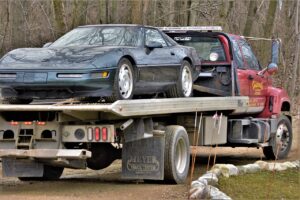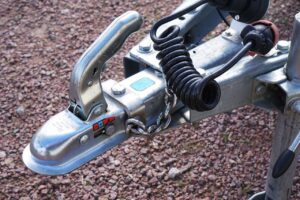Automotive wiring harnesses are the lifelines of a vehicle’s electrical system, connecting various components to the power source and each other. However, these complex networks of wires, connectors, and terminals are not immune to problems. Issues with a wiring harness can lead to malfunctioning electrical components, which in turn can affect the vehicle’s performance or even lead to safety hazards. This blog post will guide you through troubleshooting common issues in automotive wiring harnesses, ensuring your vehicle stays in top electrical health.
Symptoms of Wiring Harness Problems
Before diving into troubleshooting, it’s important to recognize the symptoms that might indicate a problem with the wiring harness:
- Intermittent electrical problems: Components work sporadically.
- No operation: Electrical components not working at all.
- Burnt plastic smell: Indicates a short circuit or an overheated wire.
- Visible damage: Frayed wires, loose connections, or melted insulation.
Step-by-Step Troubleshooting Guide
Step 1: Visual Inspection
- What to do: Carefully inspect the wiring harness for any visible signs of damage, such as cracked, frayed, or exposed wires, burnt spots, or damaged insulation.
- Importance: This can quickly identify the source of most electrical issues without needing to test every single wire.
Step 2: Check for Loose Connections and Corroded Terminals
- What to do: Examine all connectors and terminals for looseness and corrosion. Clean any corroded terminals with a wire brush and ensure all connections are tight.
- Importance: Loose or corroded connections can disrupt the electrical flow, leading to malfunctions.
Step 3: Test for Continuity
- What to do: Use a multimeter to check for continuity in the wires and circuits. A lack of continuity indicates a broken wire or bad connection.
- Importance: Ensuring each wire properly conducts electricity is crucial for the operation of vehicle components.
Step 4: Check for Short Circuits
- What to do: Inspect the wiring harness for any points where wires may be touching each other or the vehicle’s body without insulation, which could cause a short circuit.
- Importance: Short circuits can lead to more serious electrical issues, including fires.
Step 5: Verify Against Wiring Diagrams
- What to do: Compare your wiring harness to the vehicle’s wiring diagram to ensure all connections are correct and no wires are misplaced.
- Importance: Incorrect wiring can cause electrical components to malfunction or not operate.
Step 6: Inspect for Environmental Damage
- What to do: Look for signs of damage from environmental factors, such as water intrusion or rodent damage.
- Importance: Environmental damage can lead to corrosion and other issues that may not be immediately visible.
Preventive Measures
After troubleshooting, it’s beneficial to take preventive measures to avoid future problems:
- Use protective sleeving to guard against heat and abrasion.
- Apply dielectric grease on connectors to prevent corrosion.
- Regularly inspect the wiring harness as part of routine vehicle maintenance.
Conclusion
Troubleshooting automotive wiring harnesses can seem daunting due to the complexity of modern vehicles’ electrical systems. However, by methodically following these steps, most common issues can be identified and resolved. Remember, electrical systems are sensitive and can be dangerous to work on, so take appropriate safety precautions or consult with a professional if you’re unsure.
Addressing wiring harness issues promptly can save time and money, ensuring your vehicle remains reliable, safe, and efficient. If you encounter complex wiring problems or need custom wiring solutions, reaching out to experts like WiringLabs can provide the expertise and support you need.
If you need custom wiring harness or cable assemblies, feel free to contact WiringLabs.



